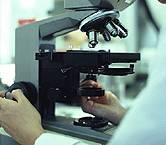Study May Explain How Circumcision Reduces HIV Risk
The procedure reduces bacteria, affecting how body fights AIDS virus, researcher says.
A new study reveals that circumcision affects the type of bacteria that live on the penis, which could explain why circumcised men have a 50 percent to 60 percent reduced risk of being infected by HIV, the virus that causes AIDS.

Circumcision also lowers the risk of infection with other sexually transmitted viruses such as human papillomavirus and herpes simplex virus type 2, researchers have found.
Instead of viruses, however, this study looks another type of microbe: bacteria.
In this study, researchers assessed the numbers and types of bacteria on the penis before and after circumcision. One year after the procedure, there was a significant decline in the total number of bacteria, a drop in the number of anaerobic bacteria (which thrive in locations with limited oxygen), and a slight increase in the number of aerobic bacteria.
?The change in the communities is really characterized by the loss of anaerobes. It's dramatic."
"From an ecological perspective, it's like rolling back a rock and seeing the ecosystem change. You remove the foreskin and you're increasing the amount of oxygen, decreasing the moisture -- we're changing the ecosystem," expert explained.
The exact way that the bacterial community on the penis may affect the risk of HIV infection is not known, but previous research suggests that these bacteria may influence how susceptible the penis is to sexually transmitted viral infections.
In uncircumcised men, a higher number of bacteria may activate cells in the foreskin called Langerhans cells, preventing them from carrying out their normal role of fighting off viruses. Instead, the activated Langerhans cells may actually help HIV infect the immune system.
The circumcision-related reduction in the number of bacteria on the penis could prevent the Langerhans cells from doing this.
This research could lead to nonsurgical alternatives to circumcision that would alter the bacterial community on the penis and reduce the risk of HIV infection in men.
Source: HealthDay News
- 350 reads



